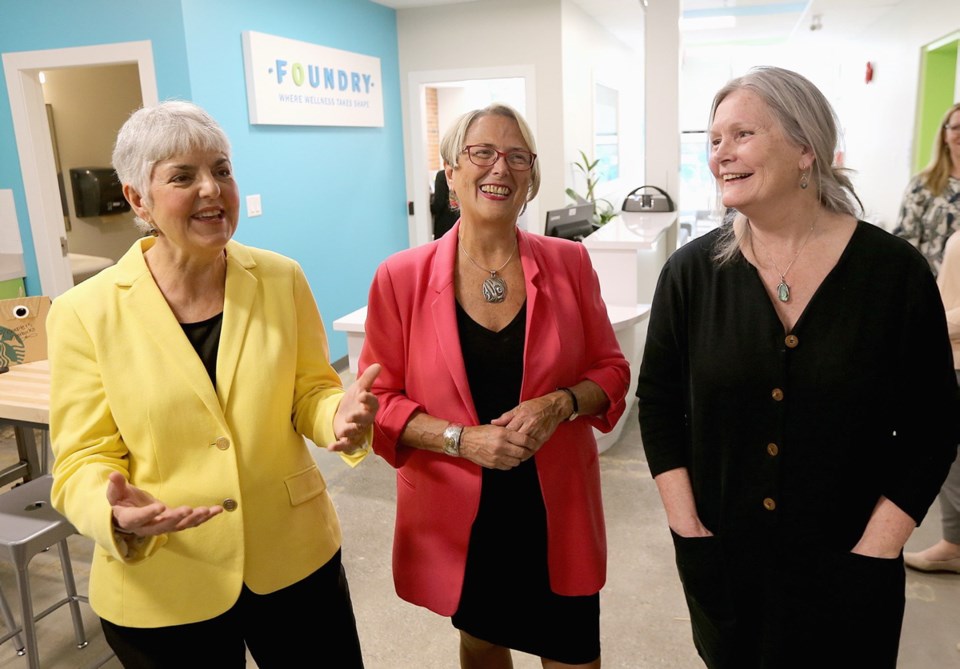A new “one-stop shop” where Victoria youth can get help for physical, mental-health and addictions issues marks an important step toward a seamless system of care for young people, advocates say.
Foundry Victoria, which officially opened Tuesday at 818 Douglas St., offers walk-in access to a range of services all under one roof. It’s the sixth such centre to open across B.C. with five more in development.
Representative for children and youth Bernard Richard, who called for major improvements to B.C.’s youth mental-health system in a report last fall, said he likes the Foundry concept of gathering programs together in one place to share information, co-ordinate services and reduce duplication.
“It’s the right model, so I will be following it very closely as it rolls out across other sites in B.C.,” he said.
Bev Gutray, chief executive officer of the Canadian Mental Health Association’s B.C. branch, agreed. “Absolutely, it’s the right thing to do,” she said.
But both she and Richard said far more is needed.
“Yes, they’re a good step,” Gutray said. “And, yes, we still need a lot more to be done and we need that support to be in our schools, in our daycares and in the homes of parents.”
She said the provincial government will have to make a bold investment in mental health services for youth if it hopes to reach thousands of kids still without the supports they need.
Judy Darcy, B.C.’s minister of mental health and addiction, acknowledged Tuesday that an estimated 84,000 B.C. children and youth between the ages of four and 17 have mental-health challenges and only about one in three get the support they need.
She said the province is working on a strategy slated for release this fall. “We know we need to build a seamless system of supports where every door is the right door and where you ask once and you get help fast, and that’s exactly what happens here at Foundry,” she said.
Dr. Steve Mathias, Foundry’s executive director, said the centres offer youth immediate help if they walk through the door.
“What we’ve experienced is that young people access more than just mental health services,” he said. “The nice thing about having the resources in one space is that you may need ongoing treatment or behavioural therapy for depression and might need to be on a waitlist for that because the group is starting in a month or two months.
“But while that’s happening, you can still access other services and you can still access walk-in counselling. So it’s changing the model and moving away from very episodic-based care.”
Foundry Victoria is operated by the Victoria Youth Clinic and brings together counselling support, peer support, the NEED2 Suicide Prevention Education and Support program, and Island Health’s Early Psychosis Intervention teams, with more services still to come.
Darcy said one of the benefits of the Foundry centres is that a team will be responsible for a young person’s care, rather than a family having to go from place to place in search of help.
“There really are warm bodies, warm hands that are guiding you in your pathway and in all the aspects of your care and that’s an enormous difference,” she said.
Darcy added that, in the future, the government will place more emphasis on prevention and early intervention.
“So that means, going forward, we’re going to see a major focus on increasing mental-health supports in our schools and ensuring that there are mental- health professionals there that can work with counsellors, that can work with teachers, in order to give those supports early on so that mild and moderate mental- health issues don’t turn into severe mental-health issues and don’t turn into substance use,” she said.



